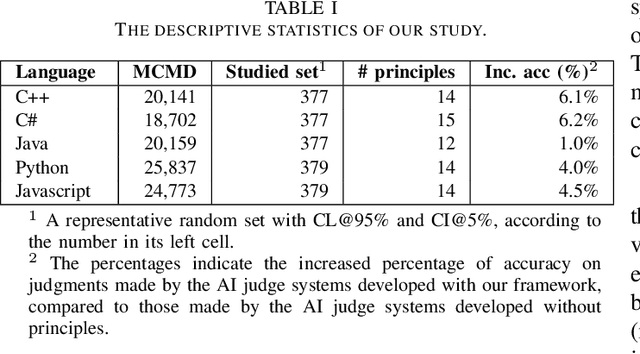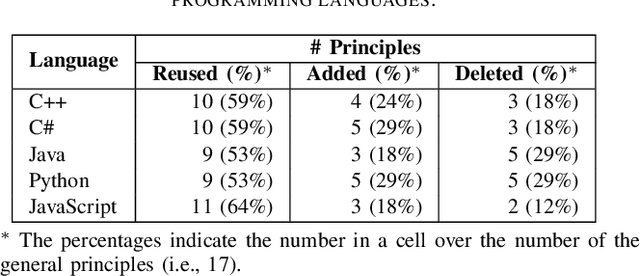Jiahuei Lin
Justina
Engineering AI Judge Systems
Nov 26, 2024



Abstract:AI judge systems are designed to automatically evaluate Foundation Model-powered software (i.e., FMware). Due to the intrinsic dynamic and stochastic nature of FMware, the development of AI judge systems requires a unique engineering life cycle and presents new challenges. In this paper, we discuss the challenges based on our industrial experiences in developing AI judge systems for FMware. These challenges lead to substantial time consumption, cost and inaccurate judgments. We propose a framework that tackles the challenges with the goal of improving the productivity of developing high-quality AI judge systems. Finally, we evaluate our framework with a case study on judging a commit message generation FMware. The accuracy of the judgments made by the AI judge system developed with our framework outperforms those made by the AI judge system that is developed without our framework by up to 6.2%, with a significant reduction in development effort.
Rethinking Software Engineering in the Foundation Model Era: A Curated Catalogue of Challenges in the Development of Trustworthy FMware
Mar 04, 2024



Abstract:Foundation models (FMs), such as Large Language Models (LLMs), have revolutionized software development by enabling new use cases and business models. We refer to software built using FMs as FMware. The unique properties of FMware (e.g., prompts, agents, and the need for orchestration), coupled with the intrinsic limitations of FMs (e.g., hallucination) lead to a completely new set of software engineering challenges. Based on our industrial experience, we identified 10 key SE4FMware challenges that have caused enterprise FMware development to be unproductive, costly, and risky. In this paper, we discuss these challenges in detail and state the path for innovation that we envision. Next, we present FMArts, which is our long-term effort towards creating a cradle-to-grave platform for the engineering of trustworthy FMware. Finally, we (i) show how the unique properties of FMArts enabled us to design and develop a complex FMware for a large customer in a timely manner and (ii) discuss the lessons that we learned in doing so. We hope that the disclosure of the aforementioned challenges and our associated efforts to tackle them will not only raise awareness but also promote deeper and further discussions, knowledge sharing, and innovative solutions across the software engineering discipline.
 Add to Chrome
Add to Chrome Add to Firefox
Add to Firefox Add to Edge
Add to Edge